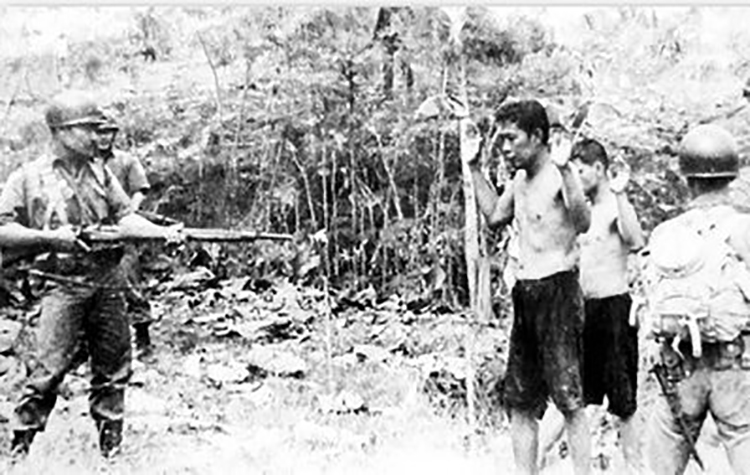Today marks the 50th anniversary of the failed coup in Indonesia that sparked the mass-killings of 1965-1966. Over the course of a few months an estimated 500,000 to 1 million people lost their lives. In the following years millions more disappeared, were killed, arrested and imprisoned, while gross violations of human rights were rampant. The lack of any sincere attempts to bring the perpetrators to justice is an embarrassment not just for Indonesia, but for the entire international community.
On 30 September 1965, an attempted coup resulted in the killing of six generals. Major General Suharto made use of the opportunity to take de facto control of the country and blamed the failed coup on the Partai Komunis Indonesia (PKI, Indonesian Communist Party). The following months saw mass-killings across the country, committed by the Indonesian Army, civilian death squads and local vigilantes. While actual or suspected members of the PKI were the primary victims, leftists, Chinese and in some areas Christians were targeted too.
In 1966 Suharto officially took power. A reign of over 30 years that was marked by gross violations of human rights and crimes against humanity, among others in Timor Leste. A very dark page in the history of Indonesia. One that the rest of the international community should take responsibility for too.
Firstly, support for the change of power and the killings was strong and public, particularly in the West. While it should be noted that news of the extend of the killings was carefully controlled by intelligence services, the anti-communist discourse was strong and prevailed over sympathy with the victims. At the height of the Cold War the toppling of the Sukarno regime, which was believed to be sailing to closely to communist regimes in the region, was applauded as the possible start of a domino effect, which was hoped would lead to the end communism in Asia. More so, involvement of foreign forces has long been suspected. Claims of help with compiling lists of communists, supplying of weapons and other equipment, and even financial support have primarily pointed at the USA and the UK, but other countries have been implicated as well.*
Secondly, the events of 1965-1966 can be counted as one of the worst mass-killings of modern history. While in Germany, Rwanda and Cambodia trials and tribunals have attempted to bring perpetrators to justice, among others because of great pressure from the international community, nothing of the sort has happened in Indonesia. On the contrary, the mass-killings have been denied, distorted and even celebrated. Clearly the Indonesian Government needs to be called out on this. President Joko “Jokowi” Widodo has promised he will address the past, but has so far done little. But pressure from abroad has been little and feeble too, the 50th anniversary of these horrific events presents an outstanding opportunity to change this.
Finally, as Indonesia is growing into its role as regional and global power, this maturing process needs to be combined with a serious confrontation with its own past. Given the power that many of those that were involved in the mass-killings still hold over the country, the push for this domestically is still complicated. Yet, Indonesia’s development is both highly connected and dependent on its relations with the international community. All those leaders across the world who are standing in line to align themselves to the fourth most populous nation in the world, need to both demand the country addresses its past and critically review their own role in what happened in 1965-1966.
50 years is an unbearably long time. Millions of people in Indonesia were directly or indirectly victimized by what happened in 1965-1966. The international community needs to support the victims to raise their voices. Additionally, the Indonesian Government needs to follow-up on the investigation of Komnas HAM (the Indonesian National Human Rights Commission) by setting up a human rights tribunal specifically focused on this particular period. The Indonesian Government and the rest of the international community owe it to these people to finally bring those responsible to justice, and end this embarrassing silence.
—–
* See ‘Accomplices in atrocity’, by Brad Simpson www.insideindonesia.org/accomplices-in-atrocity, and John Gittings (1999), ‘The Indonesian Massacres, 1965-66’, Published in Mark Levene & Penny Roberts, eds., The Massacre in History, New York: Berghahn Books, 1999, pp. 247-262 www.johngittings.com/id58.html




